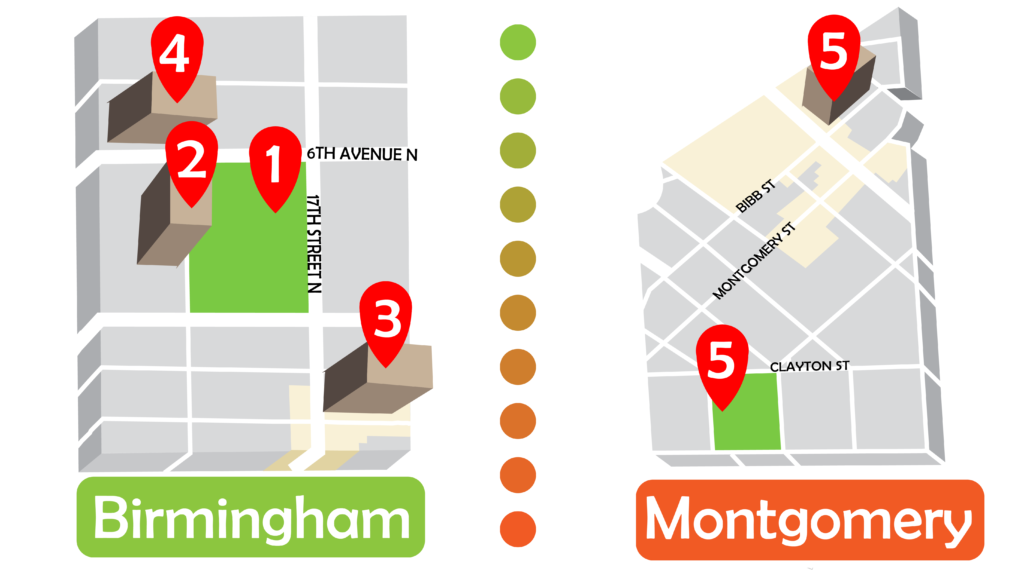
Hannah Richey
Senior Staff Reporter
hgrichey@uab.edu
Birmingham has been an important location for Black history in the south spanning before the Civil Rights movement and after it. For the purpose of learning about one of the most important periods in Birmingham history, here are some locations that students can visit that arejust a short ride from UAB.
Kelly Ingram Park
Kelly Ingram Park was the central location of the protests organized by Reverend James Bevel in May 1963. In 1992 the park was renovated alongside the founding of the Birmingham Civil Rights Institute as “A Place of Revolution and Reconciliation.” The park has statues depicting the events of the protests as well as memorials of those who made the movement possible.The park has guided audio tours available by calling (205)307-5455. The park is free to visit.
Birmingham Civil Rights Institute
The Birmingham Civil Rights Institute was founded in November 1992. The museum is self-guided and includes exhibits showing the founding of Birmingham in 1871 to the present history of human rights. Visitors can also see special exhibits that change from time to time. The permanent exhibits include the Barriers gallery, Confrontation gallery, Movement gallery and the Human Rights gallery. Tickets for college students are $6 with an i.d. and $15 for non-student adults.
Alabama Jazz Hall of Fame
The Alabama Jazz Hall of Fame museum is located inside the Carver Performing Arts Theater, historically a place where African Americans were able to see first-run movies during segregation. The museum portion honors Alabama’s great Jazz musicians and seeks to educate the public about jazz’s legacy as music indigenous to the U.S. The museum contains memorabilia from notable jazz artists. They also host free jazz classes for the public every Saturday morning. Guided tours can be reserved and walk-in visitors can access the public archives upon request.
16th Street Baptist Church
The 16th Street Baptist Church was the site of a bombing by the KKK. The bombing killed four girls aged 11-14 years-old and injured others in the area. The bombing was also part of President Johnson’s reason for passing the 1964 Civil Rights Act. The Church is still in operation and anyone is welcome to join the congregation for their worship services at 10:45 a.m. on Sundays. For a tour of the church, groups must have 10 or more people, but smaller groups and individuals can visit the sanctuary during operating hours.
Legacy Museum and National Memorial for Peace and Justice
The Legacy Museum was founded by the Equal Justice Initiative in 2018 and is located in Montgomery, Alabama. The museum is a history of slavery, Jim Crow and modern-day mass incarceration. The tour is self-guided and utilizes technology to show the horrors of racism in the U.S. The National Memorial for Peace and Justice is a memorial for lynching victims and can be accessed by a bus that leaves from the Legacy Museum. It contains blocks for counties with recorded lynching’s and the names of the victims. Tickets are $7 to visit both areas.
